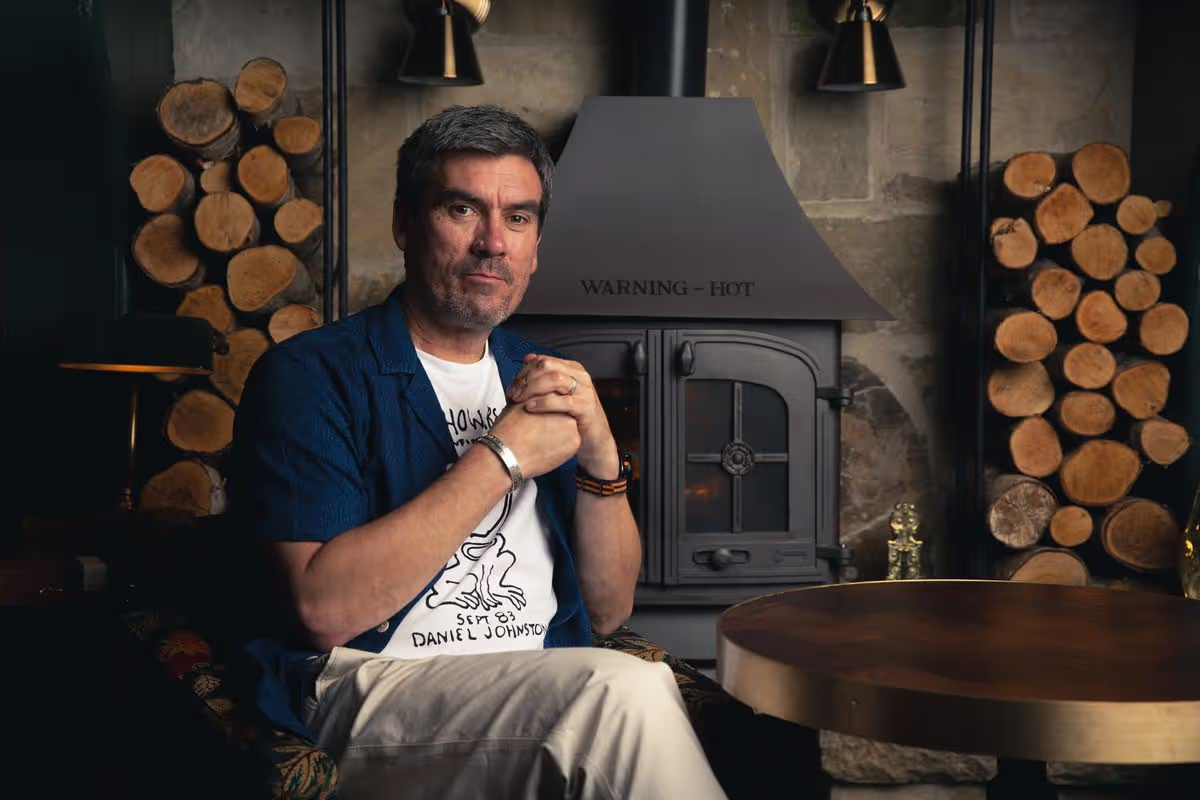Legendary star Jeff Hordley admits that his latest dramatic storyline has been his “hardest ever” and has vowed to get a special blood test, checking for warning signals, for his own peace of mind.
Emmerdale’s Cain Dingle is told tomorrow night that he has prostate cancer. With 64000 new cases diagnosed in the UK predominantly in men over the age of 50, Jeff Hordley – who has played hardman Cain for 25 years – tells the Mirror: “This is the hardest story I have ever worked on throughout my time on Emmerdale because I want to make sure I get it right for the many men who are sadly affected.”
The most commonly diagnosed cancer in the UK, a family history of the disease also increases the risk of prostate cancer, which effects one in eight men – with the risk doubling for Black men. Often without symptoms in the early stages, a special PSA blood test, can, however, detect abnormalities that can lead to early diagnosis and a far better survival rate.
READ MORE: Corrie star James Cartwright reveals tragic encounter with stranger at station
Jeff, 55, explains: “Prostate cancer can have such an enormous effect on both the person diagnosed and their family. I feel fortunate because my family has not been affected by the disease and thankfully a health check I had a few years ago, that included my prostate, was fine.
“But filming this storyline has made me realise how sobering the disease can be and how it affects so many. It’s so important if you are in a higher risk category to get tested. As soon as I have my next day off, I am going to be making an appointment with my GP to have a PSA test.”
Unfortunately, Cain, 51, like so many men in real life, failed to take a test because he lacked symptoms. But in January during the explosive Corriedale special, the Dingle fan favourite was shocked to learn he had a mass on his prostate gland after being rushed to hospital when he was shot at by evil John Sugden. Scanning his wound, the tumour was detected and doctors ordered further tests.
Now after an agonising month-long wait, Cain will be told he has cancer. It is localised but aggressive and he will require urgent surgery. He is also warned there could be serious surgical side effects including incontinence and erectile dysfunction. It leaves the family man, whose wife, Moira, is currently locked up in prison charged with two murders she didn’t commit, terrified he won’t be able to protect those he loves the most if he tells them the truth.
“Cain is frightened of telling anyone,” says Jeff. “Everything is falling to pieces and he doesn’t deal with his diagnosis at all well. He has never found it easy to talk about his feelings anyway but after learning of his diagnosis, he snaps at everyone. He worries that if he tells anyone and with Moira in prison, nobody will be around to look after their children. He is terrified he is going to die.”
A very likeable actor who is worlds away from the hardman he plays on-screen, Jeff – happily married to fellow Emmerdale star Zoe Henry, 52, who has played Rhona Goskirk for 22 years – is keen to use his soap role to raise awareness. He says: “We’ve been working together with Prostate Cancer UK on Cain’s story and we are going to explore the enormous impact it has on everyone’s lives. Soaps can play a hugely powerful part in raising awareness and if it encourages one man to get tested and find out they have this illness before it is too late – then that has to be a positive thing.”
Secretly told about Cain’s cancer storyline last September, his first reaction was understandably to take a big gulp when he heard the word ‘cancer’. Fearing it might mean the end of his character’s time in the soap, he confesses: “When I had my meeting, our producer, Laura, told me Cain was going to get shot in Corriedale. I was like ‘oh gulp’. But she said: ‘it’s ok you will survive the shooting’. It was then she told me doctors would find a mass from a scan in the hospital and that it would be cancer. I had to do a double gulp.”
Reassured the storyline would pan out for quite some time, Jeff remains tight lipped about what lies ahead but teases: “Cain is told surgery could make him incontinent and/or he could have an erectile dysfunction afterwards. “For some men, this can be short term but for others, it is forever. What if Moira won’t want him? This will be a story about how ultimately their love for each other is so strong.”
He admits the surgical side effects were something he had no knowledge of before he started filming, adding: “I found them really sobering and I think it is important we do make men aware, so they do feel more knowledgeable.”
Working flat out on the huge storyline, it is the latest of many powerful plots he has been involved in during his stellar 25-year soap career including discovering Cain was the illegitimate son of Zak Dingle and being diagnosed with a brain injury in 2015.
Jeff confides it helps enormously that Zoe, who he has two grown-up children with, understands the pressures of filming a big storyline. To unwind, they enjoy country walks near the family’s home in Yorkshire. He says: “Zoe totally understands and I’m so lucky that if I have had a big day and she gets home before me, she will cook something nice. Walks with my dogs are also a good way to switch off too, as is watching a film. I also DJ a bit which I really enjoy.”
And as someone who abstains from drinking alcohol in January and February, he says a ‘clear head’ helps him cope too. Going on to praise the entire Emmerdale cast and crew, he feels ‘blessed’ to be working alongside Natalie J Robb, who plays Moira. He adds: “We have a great shorthand and it is easy to be in Cain and Moira’s world when you are acting alongside Nat. To work on the Corriedale special was also an honour and my one day on ‘the cobbles’ was like the best ‘work placement’ day ever. To see Bill Roache walking the Emmerdale corridors was surreal, he’s such a legend and a gent.”
While Jeff acknowledges he is lucky to not have cancer, he does, however, live with Crohn’s disease. As a result, he is very health conscious, grows his own vegetables on an allotment and cooks from scratch. Jeff, an ambassador for Crohn’s & Colitis UK, says: “It is a different debilitating disease to cancer. I had a big operation in my final year at drama school at the age of 26 and since then, I have mainly been ok. I have been able to navigate it with my diet thankfully.”
For now, Jeff hopes by giving a rare interview, it will help to save lives, adding: “I hope after watching Cain’s storyline, it will encourage men to get tested. It could save their life.”
*If you have been affected by the Cain storyline, help can be sought at prostatecanceruk.org





